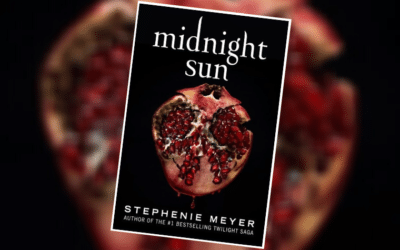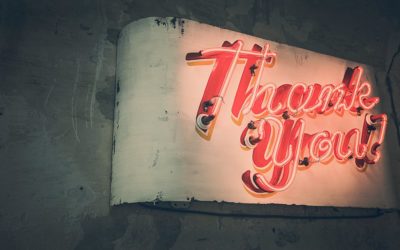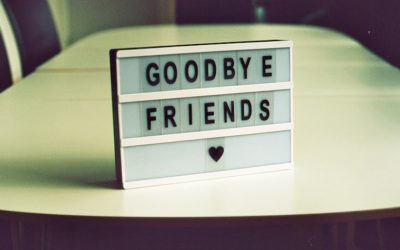The Covenant.
Depending on who you say those words to, it may cause a shiver to run down their spine. There are many reasons why. They might have fond memories of it, they might be midway through a cringe, or maybe they just don’t like hard C’s.
A hat thrown into the ring of “teenagers with supernatural abilities” genre at the back half of the aughts, The Covenant is a film about a group of male witches in Ipswich, Massachusetts (naturally) that took itself far too seriously, when really it should have embraced it’s utter ridiculousness from the start. Had it done so, it’s entirely possible that it would’ve fallen into that coveted cult classic realm. Alas, though it is rife with cheesy one liners and a laughable plot, I don’t think that status will ever befall this movie, much as I would love for it to.
However, depending on what stage of your life you were in, where your allegiances lie, the level of secondhand embarrassment you’re comfortable dealing with, or maybe all of the above, it’s entirely possible that this movie has a special place in your heart. It certainly does in mine.
“But Megan,” you might say, “The Covenant came out in 2006. Why on earth are you talking about it now?”
Well, my dear friend, because I didn’t write for websites in 2006 and I do now. Also, it hits American Netflix this June and I feel like we could all use some more The Covenant related content at this time. And most importantly, it has taken me approximately a decade to fully come to terms with all of my feelings about the film and its chief antagonist.
I’m here to talk to you today about Chase Collins.
I did not find The Covenant when it came out. I don’t think I was that film’s target audience as I was over the age of sixteen and wasn’t really into the whole “teensgers with supernatural abilities” genre. 2009 is when I would be exposed to it, when I began watching a short lived television show called Kings. I kinda-sorta-maybe fell in love with heir to the throne in the Kingdom of Gilboa, Prince Jack Benjamin, portrayed with more nuance than that show deserved by Sebastian Stan, long before his beef upgrade when he became Marvel’s Bucky Barnes/Winter Soldier.
I was beset with an urge to consume everything that he had starred in up until that point. This included The Covenant. For better or for worse, I was going to watch this silly movie about male witches.
And it really is a silly movie, though it has become one of my go-to’s in recent years for cheering up whenever I’m feeling down. The world can’t truly be a bad place if a film like this exists, can it?
Thanks to IMDb, we have a handy synopsis to sum it all up for you if you’re unfamiliar with The Covenant, or need reminding because you scrubbed your brain of it:
To the students of the Spenser Academy, the Sons of Ipswich are the baddest boys on campus. But that’s not all they share. The four friends also share a 300-year-old secret: they’re warlocks, the teenage descendants of a 17th-century coven of witches. So when the long-banished fifth son suddenly appears and threatens to kill their loved ones, they realize they must face their enemy in order to prevent him from stealing their powers and shattering the covenant forever.
Sebastian Stan plays Chase Collins, the descendant of the banished fifth son. Witchy shenanigans ensue.
Much like anything awful or cringe-worthy he’s ever starred in, Sebastian portrays the character with a level of depth that the work doesn’t necessarily deserve. That’s not to say he doesn’t run with the camp and sink his teeth into the more ridiculous parts with gusto (it’s very apparent that while everyone else may have thought they were filming a serious movie that he knew how suspect the finished product would be), because he definitely does. But he also does it convincingly.
So, now that we’ve gotten all of that out of the way, let’s get into what I’m really here to talk to you about.
Chase Collins isn’t the bad guy.

The other four witches, Caleb Danvers (Steven Strait), Pogue Perry (Taylor Kitsch), Reid Gawin (Toby Hemingway), and Tyler Simms (Chace Crawford) are the tightest of bros. Hell, everyone even calls them the Sons of Ipswich. They do everything together, and have since they were children. The four of them have a special bond that goes back beyond their existence, to their fathers, their fathers before them, and so on. And you have all your favourite bad boy character tropes here – Caleb is their level headed and begrudging leader, Pogue is the hot-headed one, Reid is the mischievous one, and Tyler is the…quiet one? I honestly don’t know because he doesn’t do much, except lose Caleb’s girlfriend when he’s supposed to be ensuring that she doesn’t get kidnapped by Chase (you had one job, dude).
But what is made very clear is that the four of them have always had each other. They’ve known who they are, what they are, and have had a support system in which to work out all of the confusing and frightening details that come with possession of their powers. The big buzz around the Sons is Caleb’s eighteenth birthday, when he will “ascend” – which is to be able to gain his full power.
Chase has had none of that. It’s established that Chase was adopted, and was unaware of the origin of his powers. When Caleb begins delving into Chase’s background once he suspects him of being a witch (and having been the cause of some unpleasantness that has happened around the other four), it’s also revealed that Chase “killed” his adoptive parents in a car accident on his eighteenth birthday.
For those following at home, this would have been when he ascended.
It’s not so much a question of whether he did or did not kill them, but I don’t think that it’s outside the realm of possibility that it was truly an accident. The ascension is later shown when Caleb experiences it as being pretty violent. If Chase was unaware of his powers, of who he was, it’s possible that it caught him off guard when he and his adoptive parents were driving somewhere, and as a result of his ascension they were killed. Even if Chase had been dabbling with his powers before then, he wouldn’t have known what was going to happen.
Chase eventually finds his biological father, who tells him what he is, what his powers are and what they do when you “use” them too much (holy drug allegory, Batman). He uses these powers to inflict an illness on Pogue’s girlfriend, Kate, and while all smiles with Caleb’s girlfriend, Sarah, during the day, spooks her endlessly during the night.
At this point, Chase is already addicted, and wants Caleb to will him his power once he ascends. He will become more powerful, he thinks. The ravages of using his powers too much will help him not wither away and die looking one hundred years old at eighteen, the thinks. Caleb warns him that’s not how it works, but Chase seems unwilling to accept this.
Have we considered that this is a cry for help?
The bond that the other four Sons share is palpable, even if it is ridiculous. They have in-jokes, goad one another, engage in that awkward battle for masculinity and pride that teenage boys often do. Chase is left on the outside looking in, knowing that he could have been a part of all this, but the transgressions of his ancestors have made his exclusion necessary. The Sons have no idea who he is, but he knows who they are, they could be his brothers, and perhaps he’s just looking for a place to belong.
This is very apparent in scenes where Chase is trying to infiltrate the group like a new kid in school (which he also is). He gets in the face of an asshole jock harassing the Sons at a party at the beginning of the film, later at a local hangout he sits with them and makes fun of Pogue’s ridiculous male posturing while trying to get to know Caleb better.
Is this just so he can get to know them better so that he can hurt them in his quest to get Caleb to will him his power? Probably. He’s not entirely innocent when we first meet him (it’s later revealed that a kid who ended up dead at the party featured at the beginning of the film was killed by Chase). But these could also be the actions of someone who is frightened of what they are, of who they’ll become.
I’m not trying to be an apologist for Chase’s shitty behaviour. It could also be that he really is a terrible person who just wants all of the power that he can take from any ascended witch. While I make the case that maybe Chase isn’t a bad guy, that he was frightened and looking for belonging in a new and frightening world, one could also make the case that he’s not a good person. He could very well have killed his adoptive parents, his biological father, the boy from the party in an evil and misguided quest to obtain more power. But that seems so much less interesting given the masterclass that Sebastian teaches in how to bring depth to a character that you’re not supposed to like.
Logically, I know that it all really is as simple as its portrayed in The Covenant. Chase is meant to be the bad guy in this film because we’re told that he is. And yet I can’t help but feel sympathetic toward his character (yes, even when he says things like “A spider came and sat down beside her and frightened Miss Muffet away!”) as he navigates something that he doesn’t entirely understand, something that is strange to him, with little to assistance from anyone.
It’s very probable that it’s not meant to be that deep, but we honestly could’ve had it all. I’m all for a fun romp that’s exactly what you see on the cover as much as anyone, and yet I almost feel like we were cheated out of a film that could’ve had some actual depth to it. A film that was something more than bad witch vs. good witch.
Had we been granted the pleasure of perhaps seeing that film as opposed to what we got (not that it isn’t wonderful in it’s sort of horrible kind of way), maybe when the flames died down, and rubble cleared after the final battle, we would’ve gotten the sequel that so very clearly was set up.

I often tell people when the topic of The Covenant comes up (which is rarely) that I love it un-ironically. Yes, for all intents and purposes, it’s a bad movie. But objectively bad movies can be loved, and this is one of those movies for me.
As such, I’d like to apologize in advance for saying “Ooooh, witchy!” to everyone I possibly can if the situation allows (as if I haven’t been for years now already).




